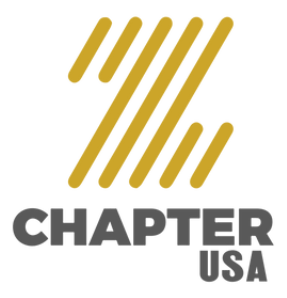Generation Hispanic TV - Live
Redefining Tarot in 2022
Redefining Tarot in 2022
[simple-author-box]
Living in ‘uncertain times’ may be a frequent notion in today’s day, but this has been something we as worry-prone humans have been saying to each other for centuries. Cultures and ancient script have informed us on how to deal with the shaky idea of things going wrong but somewhere along the line – perhaps due to the internet, perhaps due to the rapid construction of new issues, perhaps due to political climate – we lost touch with what is an incredible self-help tool for those who utilise it as such.
Tarot has been around for a very long time. This deck of 78 cards started off as a game and has progressed its way into being a tool of divination for those looking for answers that resonate. Along the line it was assigned importance with the qualities and themes shared in our lives, like those depicted in the 22 major arcana. Today, in 2022, we can see how tarot has transformed from being shunned as witchcraft to being celebrated online and as a profession for those who wish to help others with their readings – and in some cases, predictions.
The widespread of tarot being used as a tool of divination – a form of energetic communication from a higher consciousness – came to be in the late 1700s. Though tarot cards themselves have roots in Northern Italy, they’ve now become a raging trend on video sharing app TikTok. With a new generation rekindling their connections with spirituality, it’s important to note how tarot is being showcased today and the implications that come with this. Like anything in excess, this has its downfall too. We can see that on impressionable young kids it seems that a reader informing an audience that their “person is thinking about them” or that they can “sense a third-party interference” can influence an entire generation to become trapped in the idea that this is message was delivered specifically for them. Now this can go sour quickly as it not only perpetuates the idea that you must believe someone else’s generic message over your own gut feelings but also creates a bitterness around tarot that questions its authenticity. Some even question as to whether spirituality practices are discouraging the use of therapists and qualified professions in psychological help.
We do though on the other hand have those who want to use their gift and skill of tarot reading as help and healing. With black and brown healers and readers beginning to reclaim spaces in this new-age influx of spirituality, we can have helpful resources to help us navigate through our lives and demonstrate how existing belief systems and tarot can co-exist. An example being Amber Khan, ‘The Quietest Revolution’ on Youtube, a Pakistani Muslim tarot card reader and astrologer who creates monthly videos for each of the twelve zodiac signs – demonstrating how tarot can be used in a helpful and gracious way to improve the self. With an audience of 250k subscribers, Amber Khan combines the teachings of Carl Jung, the I Ching and Islam to inform her tarot reads and therefore create videos that serve the unconscious rather than encourage dependence on answers and predictions.
Tarot readers of the past – the mystics, the witches, psychics – found themselves disregarded whilst religion and new rules began to overwrite the beliefs of the people. These traditions were bullied into suppression, only to then be considered as jokes and falsities by the people who then did not understand what tarot could do for them. Contrary to the growing belief, tarot is not rooted in dark magic, and has helped people in all walks of life regain strength in themselves and their intuition. Today’s tarot readers of colour often lean towards Jungian tarot, a version that bases interpretation on the self and how mindset shifts and placing energetic weight on the right things can realign your path. Because of this, it can be disregarded a practice of the dark occult and instead seen as bridge between the mind, heart and external world.
Pop culture has tried to adapt spirituality into a trend, creating falsities around what tarot is and how it could be used, encouraging an addiction to seeking answers rather than a desire to mend the self. We see a reverse of what has been done to these practices in their history, rather than a forced suppression we now see it perhaps too often and in demonstrations where the real message is lost amongst hundreds of thousands of young viewers. Though, it is easy to feel stuck in this life and our influx of passive information from the internet can do so much that it is important we seek these divination tools to guide rather than instruct our futures. We gravitate towards answers because of our uncertainty, and this encourages us to be unsure within ourselves too, so to redefine how to gain clarity we must inform our practices based on what we intuitively align with. Our spirituality has always been within us, so finally discovering online spaces where that is represented properly can create a beautiful resurgence of tarot as a tool rather than a crutch. There is space within tarot for the unsure believers and the devout and pious, and it can be used in 2021 to learn your story and celebrate the changes that come with living.



